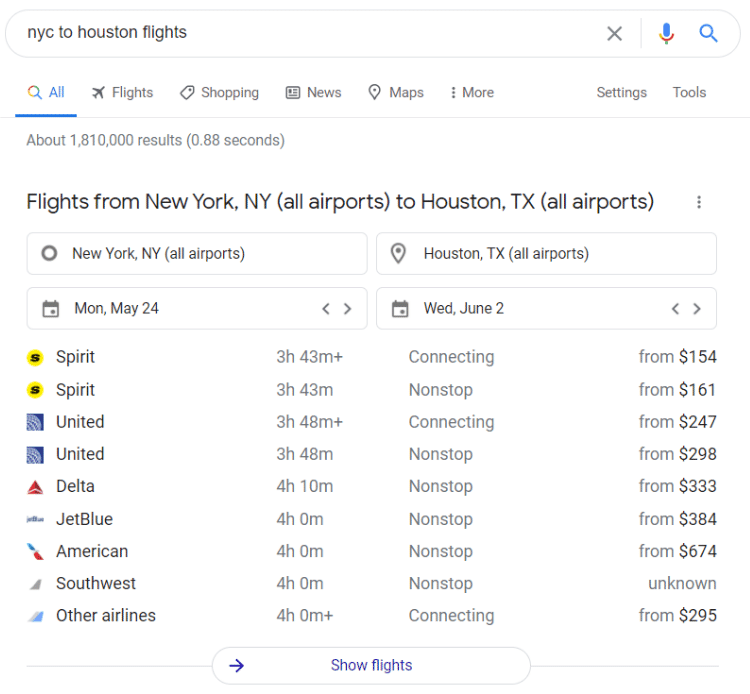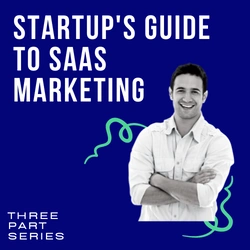Updated: April 28, 2021
4 Hardest Hit Industries By Google's Big Authority Update And What You Can Do
Table of Contents
Google has been making changes again. Some of those changes carry a community purpose to make searches safer by ensuring accurate information. Other changes improve on the overall search quality by providing instant access to pertinent information right there on the Google search result page.
While Google has prioritized the overall search experience, even going as far as adding page user experience into their search rankings, some industries will be hit harder than others. And for a few industries these changes represent a new strict stance that Google is taking against them.
Google’s dominance in web searches is nearly matched in mobile searches, making the search giant the equivalent of a gatekeeper for the Internet. Pushing your site to the top of Google’s search rankings is becoming more difficult and complicated, but still worth it.
Let’s look at the industries getting hit hardest by Google right now.
Start-Ups, Small Businesses and Entrepreneurs
It’s never been easy to be a start-up or a small business. If it were, there’d be considerably more competition. Inarguably, digital marketing has made expanding a pre-existing family, local or small business easier today than it was 30 years ago. Unfortunately, it’s become more difficult and even more intimidating to be a start-up in today’s online climate.
Google marketing is becoming more saturated by the day, and that’s making it harder to rank for competitive keywords.
Businesses that have been around for a decade or two are dominating the search listings and have built authority, making it difficult to unseat their rankings. And when it comes to pay per click (PPC) and cost per action (CPA) campaigns, the keyword cost is extremely high for most start-ups.
These days, a start-up must raise funds primarily to match their competitor’s digital marketing spending capabilities. That means most of the money raised in multiple rounds of investments are diverted to marketing and not towards development and product or service growth.
The other major issue because of Google facing start-ups right now is that the search giant has its favorites. Google favors known and positioned brands.
Google favors brand queries. So much so that if start-ups did the exact same SEO and search engine marketing as their known counterparts (link building, content marketing, etc.) the known brand name will still receive ten times more queries. Why? Because the Google algorithm has decided people prefer the brand name and so it prioritizes it.
Sadly, no matter how much money raised or how well a start-up can market itself, there is one thing that all start-ups lack. Brand queries.
No one is searching for their brand because they’re new.
You can’t search for something you’ve never heard of before. After all, that’s what brand marketing and building brand identity is all about. And a start-up must build it from nothing.
That means guest posting, podcasts, videos, lots of social media marketing, speaking engagements, charity and non-profit work and community engagement. You can’t build a brand solely from SEO, content marketing and a decent website. You have to engage, educate and communicate.
Health, Medical and Healthcare
Back in 2018 Google released one of their biggest algorithm updates. They called it the medic update. And while that was a few years ago, medical and health related companies are still taking hits from it.
Google debuted EAT, which stands for expertise, authority, and trust. EAT became the new standards across all content types in all industries. In truth, it made a lot of sense then and still does.
The concept was a simple one. The Google algorithm grants more exposure to authorities on the subject. When a person searches for “DVT symptoms” they want expert provided information. So, Google prioritizes topic related searches according to the expertise and authority of the site, which creates trust.
While many people, primarily marketers, hated this update, it was brilliant for anyone who is searching for healthcare related content.
Google has spent years cracking down on false information, and it has made their search results stronger for it.
Of course, when something is good for many, it’s usually also bad for a few. There is, after all, always a cost to be paid, and the nutritional supplement companies paid heavily with this Google update.
Most ecommerce powered health sites that sell products directly were hit particularly hard by the EAT update. Websites for medical information, research, doctors, and hospitals don’t directly sell products. That meant if your site included a store, your SEO plummeted.
Now there was, and still is, a way around the damage done by this change. You must use authoritative, credible expert personas.
5 ways to become EAT compliant if you operate a health-related ecommerce business:
- Add your professional author bio to all blog posts, including your certifications or qualifications.
- Create and link to all your social media accounts and consistently update them.
- Share educational and highly informative videos on YouTube and use proper video SEO.
- Offer to speak at local events as an expert on the subject and include photos, video snippets and even a transcript of your speech or lecture on your website, social media accounts and YouTube.
- Guest post on as many other related authority sites as you can to help build your credibility.
Financial and Legal
This pertains to all content within the Your Money, Your Life (YMYL) category including lawyers, financial advisers, estate planning services, wills, retirement planning, etc.
In short, Google decided that their EAT update was so successful and helpful to searchers that they created a similar expertise-based priority for the financial and legal industries.
They were right, again. If I searched for information on saving for retirement, chances are more likely that I want to hear from an expert in the field rather than a reality show contestant with a side marketing gig.
This algorithm update took EAT and evolved it. It’s no longer just about ranking the best and most valuable content. It’s now about making sure they aren’t ranking content that can hurt people with wrong or purposefully false information.
If you’re targeting the YMYL category, be sure to include your credentials, license or educational achievements on your website, social media accounts and author box. Google will rank any content relating to personal finances higher if you are a CPA or CFP. The same goes for all related fields, so showcase your certification everywhere.
Travel, Tourism and Accommodations
A recent update to the Google algorithm is now pulling considerably more helpful information to the forefront of a quick search. That means as a searcher we can find out about flights, hotels, reviews, tours, etc. without clicking into a particular website.
In the example below, I did a quick Google search for “nyc to houston flights“. You’ll notice the featured snippet box gives me many pricing options. If I click on “Show flights” at the bottom, I can even purchase the tickets while still on Google.

The benefit as an online searcher is huge. I don’t have to click into a site anymore to determine flight prices. And I don’t need to head over to Expedia.com or Travelocity to compare prices for my vacation week. For all of that, I’m grateful to Google.
Of course, as a marketer and website manager, I know how disastrous this change is for the entire travel industry and tourism-based websites. If a person can get a quick answer without clicking into your site, you have no chance of capturing their email with your lead magnet.
While Google introduced these changes two years ago, which they call Featured Snippets, the full impact hasn’t been felt until recently.
These featured snippets introduced easy answers to searchers at a click. No visiting the source website or scrolling through sales information and promotional offers. Just instant answers to quick inquiries.
While featured snippets improved the search experience, Google didn’t stop there. The search giant also added a direct-buy component to their search results.
Now you can type a product into the search on Google and purchase the product or service directly from the results page. How easy!
Unfortunately for airlines, travel agencies and comparative websites like Kayak.com, this does mean you can now run a quick flight search on Google, compare dozens of options and even purchase your tickets.
Not a great time to be in the travel industry with these Google changes, but what a great improvement from a searcher and consumer perspective.
Quick Wrap-Up
You may disagree with some of those Google updates, but most online searchers have embraced and praised them. And while they have certainly taken a toll on many online businesses, they have also introduced a new level of credibility to the search results. You can find your place within the changes, make some updates of your own and watch your rankings increase.
Best of all, when you’re ranking higher these days with Google’s new authority and credibility standards, those who find your site will trust you more.



Building backlinks is often seen as a job to itself and in some ways it can be. But I’m going to walk you through a few actionable steps you can take starting right now to begin your backlinks building campaign and increase your site rankings. Keep Learning >

To dominate locally your business does not need to depend on or even create content. There are other ways to succeed in local SEO. Here are nine you can start using today. Keep Learning >



